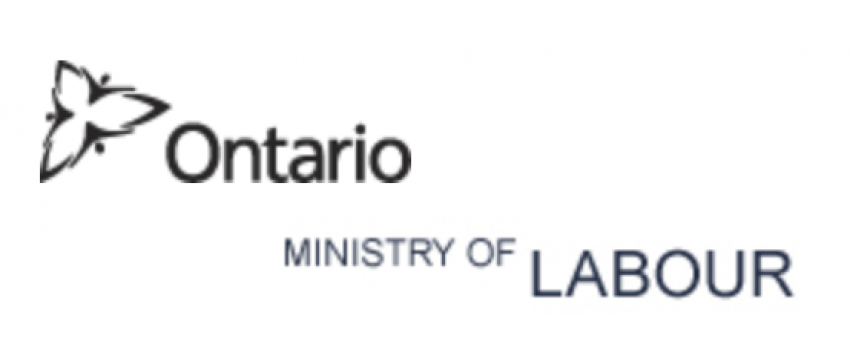Ai HR Solutions Inc

Revised: March 2017
This guide is provided for your information and convenience only. It is not a legal document. For complete information, refer to the Employment Standards Act, 2000 and its regulations.
Minimum wage is the lowest wage rate an employer can pay an employee. Most employees are eligible for minimum wage, whether they are full-time, part-time, casual employees, or are paid an hourly rate, commission, piece rate, flat rate or salary. Some employees have jobs that are exempt from the minimum wage provisions of the ESA. See “Industries and Jobs with ESA Exemptions and/or Special Rules” for information on these job categories.
Compliance with the minimum wage requirements is determined on a pay period basis.
| Minimum Wage Rate | Rates from October 1, 2016 to September 30, 2017 | Rates as of October 1, 2017 |
|---|---|---|
| General Minimum Wage | $11.40 per hour | $11.60 per hour |
| Student Minimum Wage | $10.70 per hour | $10.90 per hour |
| Liquor Servers Minimum Wage | $9.90 per hour | $10.10 per hour |
| Hunting and Fishing Guides Minimum Wage | $56.95 Rate for working less than five consecutive hours in a day $113.95 Rate for working five or more hours in a day whether or not the hours are consecutive | $58.00 Rate for working less than five consecutive hours in a day $116.00 Rate for working five or more hours in a day whether or not the hours are consecutive |
| Homeworkers Wage | $12.55 per hour | $12.80 per hour |
General minimum wage - This rate applies to most employees.
One week, Julia works 37.5 hours. She is paid on a weekly basis. The minimum wage applicable to Julia is $11.60 per hour. Since compliance with the minimum wage requirements is based on pay periods, Julia must be paid at least $435.00 (37.5 hours × $11.60 per hour = $435.00) in this work week (prior to deductions). (Note that eating periods are not included when counting how many hours an employee works in a week).
Student minimum wage - This rate applies to students under the age of 18 who work 28 hours a week or less when school is in session, or work during a school break or summer holidays.
Liquor servers minimum wage - This hourly rate applies to employees who serve liquor directly to customers or guests in licensed premises as a regular part of their work. "Licensed premises" are businesses for which a license or permit has been issued under the Liquor Licence Act.
Hunting and fishing guides minimum wage - The minimum wage for hunting and fishing guides is based on blocks of time instead of by the hour. They get a minimum amount for working less than five consecutive hours in a day, and a different amount for working five hours or more in a day--whether or not the hours are consecutive.
Homeworkers minimum wage - Homeworkers are employees who do paid work in their own homes. For example, they may sew clothes for a clothing manufacturer, answer telephone calls for a call centre, or write software for a high-tech company. Note that students of any age (including students under the age of 18 years) who are employed as homeworkers must be paid the homeworker's minimum wage.
If an employee's pay is based completely or partly on commission, it must amount to at least the minimum wage for each hour the employee has worked.
A typical case:
Luba works on commission and has a weekly pay period. One week, she was paid $150 in commission and worked 25 hours. The minimum wage applicable to Luba is $11.60 an hour. The minimum wage ($11.60) multiplied by the number of hours worked in the pay period (25) is $290.00. Luba is owed the difference between her commission pay ($150) and the required minimum wage ($290.00). Luba’s employer owes her $140.00.
Note: Where overtime hours are worked, the calculation is more complicated.
Industry-specific and job-specific exemptions and special rules may apply to some salespeople who earn commission. Please refer to the Special Rule Tool.
For the purposes of ensuring that the applicable minimum wage has been paid to an employee, an employer can take into account the provision of room and board (meals). Room and board will only be deemed to have been paid as wages if the employee has received the meals and occupied the room.
The amounts that an employer is deemed to have paid to the employee as wages for room or board or both is set out below:
When an employee who regularly works more than three hours a day is required to report to work but works less than three hours, he or she must be paid whichever of the following amounts is the highest:
For example, if an employee who is a liquor server is paid $10.30 an hour and works only two hours, he or she is entitled to three hours at minimum wage (i.e., $10.10, the liquor servers minimum wage, × 3 = $30.30) instead of two hours at his or her regular wage ($10.30 × 2 = $20.60).
Note: The rule does not apply to:
The minimum wage rates are subject to annual indexation based on the rate of inflation. If that rate is changed, the new rate will be published on or before April 1 and will come into effect on October 1.
If a change to the minimum wage rate comes into effect partway through an employee’s pay period, the pay period will be treated as if it were two separate pay periods and the employee will be entitled to at least the minimum wage that applies in each of those periods.
